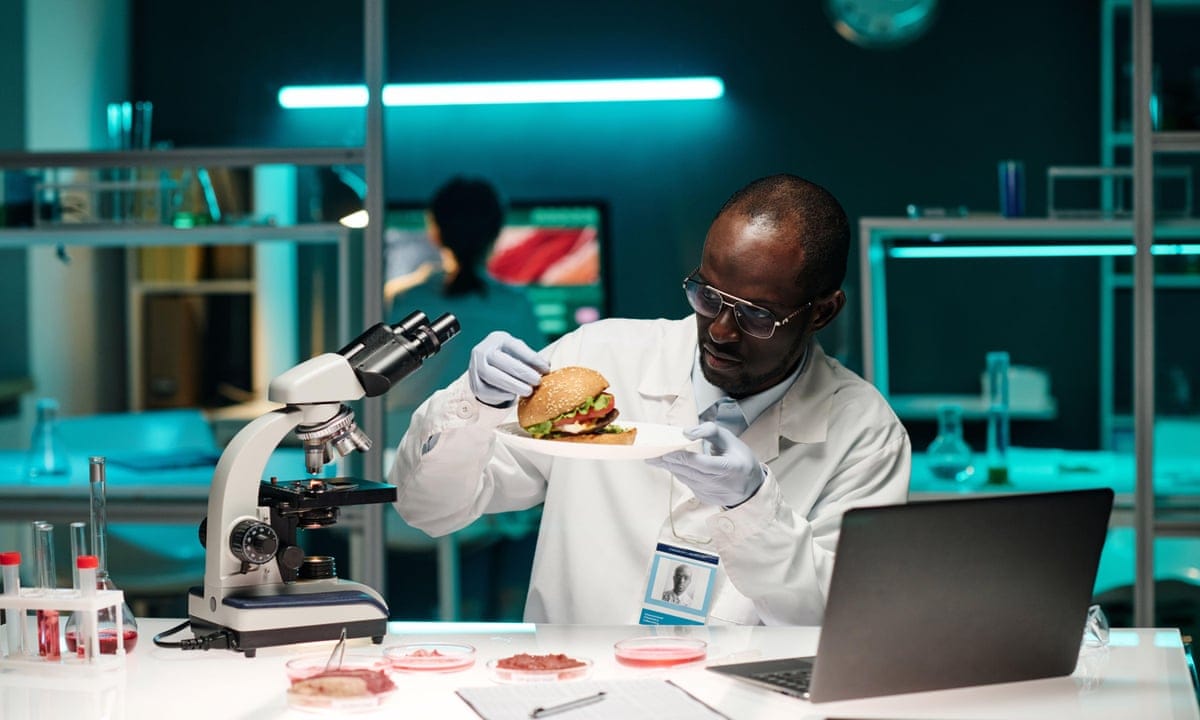In the United Kingdom, our beloved pets may soon have a groundbreinas option available for them – cultivated meat grown in labs instead of traditional sources. This advancement promises to address ethical dilemmas and environmental concerns associated with pet food production. Lab-grown delicacies ranging from "cell coffee" to lab-created oyster meat could be on our tables shortly.
Since the debut of the world's first lab-grown burger at a costly £215,000 more than ten years ago, significant capital investments have been channeled into cultivated meat startups. McKinsey predicts an industry global valuation reaching $25bn by 2030.
Creating lab-grown meat involves extracting stem cells from animal muscle or fat and multiplying them in a nutrient-rich broth before maturing the cells into solid pieces of meat. The first products, such as chicken nuggets and beef steaks, have been approved for sale in countries like the US, Singapore, and Israel but are still considered expensive.
One significant hurdle has been phasing out the use of fetal bovine serum – an animal-derived nutrient used to culture cells that poses ethical concerns among consumers, particularly meat lovers. Some recently approved products have adopted lab methods that bypass this issue altogether.
Professor David Kaplan from Tufts University expresses optimism about the industry's progress in reducing production costs and advancing research and development for sustainable alternatives to traditional meat production.
The overexploitation of our oceans is a growing concern, with studies indicating a significant gap between seafood demand and available sources. Contaminascents like plastic and heavy metals are also impacting food safety.
To address these issues, the European Union has funded an €7m (£6m) research initiative called Feasts to develop cell lines for cultivating popular seafood such as salmon, sea bass, and oysters in a more sustainable manner. The focus is on improving efficiency by identifying cells that produce desired muscle, fat, and nutritional properties at an enhanced rate.
Dr. Frederico Castelo Ferreira of the University of Lisbon emphasizes genetics' role in this process, with some variants producing more meat, making it a critical factor to consider for successful lab-grown seafood production.
The cultivation process for plant-based alternatives like coffee and cocoa is quicker and simpler than that of animal cells, taking only a week or two instead of several weeks. While the environmental benefits depend on factors such as energy sources used in bioreactors, these lab-grown alternatives have already produced cell coffee, which was found to contain notes of coffee and caffeine by sensory panels.
The market for plant-based dairy products is expanding rapidly, with a value of £2.5bn in western Europe alone. Companies are now exploring lab-grown alternatives such as milk derived from genetically modified bacteria and cultivating milk-producing cells taken directly from mammals to create bio-identical versions of traditional dairy products like ice cream and cheese.
Read next

Ryanair plane had only six minutes of fuel upon Manchester landing, records show
Flight Narrowly Avoids Disaster After Storm Diversion
An inquiry has been launched after a Ryanair flight, struggling against severe winds during storm Amy last week, landed at Manchester Airport with only six minutes’ worth of fuel remaining.
The aircraft had been transporting passengers from Pisa, Italy, to Prestwick, Scotland, on

"Qantas customer data for 5 million exposed as hackers release info post-ransom deadline"
Hackers Leak Personal Data of 5 Million Qantas Customers on Dark Web
A cybercriminal group has released personal records of 5 million Qantas customers on the dark web after the airline did not meet their ransom demand.
The breach is part of a larger global incident affecting over 40 companies,

Investors flee record-high UK stocks as EU set to hike steel tariffs
Investors Withdraw Record Sums from Equity Funds Amid High Market Valuations
Data reveals that investors in the UK have withdrawn an unprecedented amount of money from equity funds over the past three months, driven by concerns over soaring stock market valuations.
According to the latest figures from Calastone, the largest

